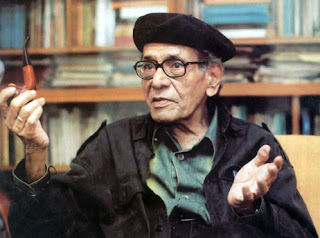
AWARDS:
1969 Delhi Sangeet Natak Academy drama Award
1973 Shikhar samman for drama, M.P. Govt. Bhpoal
1972-1978 nominated member of parliament- Upper House
1980 Visiting professor jamia millia University New Delhi
1982-1984 Jawaharlal Nehru Fellow Near Dehli
1982 Fringe Firsts Award for his play ‘charna das chor’ al Edinburgh International Drama
Festival U.K.
1982 D.Lit. Indira Music University Khairagath, Chhattisgarh
1982 Padma shree national Award Govt. of India Delhi
1983 Academy of Arts and Literature Award Delhi Administration
1982-1985 Visiting Professor pandit sundarlal shrma chair, Ravi Shankar University Raipur
C.G.
1985 Nandikar Award for Drama, Kolkata
1986 Visiting Professor M.S. University Baroda, Gujrat
1990 Kalidas Drama Award Govt. of M.P. Bhopal
1995 D.lit. Rabindra Bharti University Kolkata
2000 Maharashtra Urdu Academy Award Mumbai for play and poetry
2001 Aditya Vikram Birla kala shikhar Award Mumbai for literature
2002 Bhavabhuti Hindi Sahitya Sangh Award Bhopal for literature Bhopla M.P.
2002 Padma Bhushan National Award Govt. of India, Delhi
2002-2003 Visiting Professor Shamman Mitra Chair National School of Drama New Delhi
2002 Chakradhar Samman Chhattisgagh Govt., C.G.
2003 D.Lit. Vidyasagar University Midnapur W.B.
2003 D.Lit Guru Ghasidas University Bilaspur Chhattisgarh
2006 National research Professor Award Govt. of India, Delhi
2006 Officer of the order of Arts & Latters, Ministry of culture Arts Letters &
Communication, French Republic, Paris
